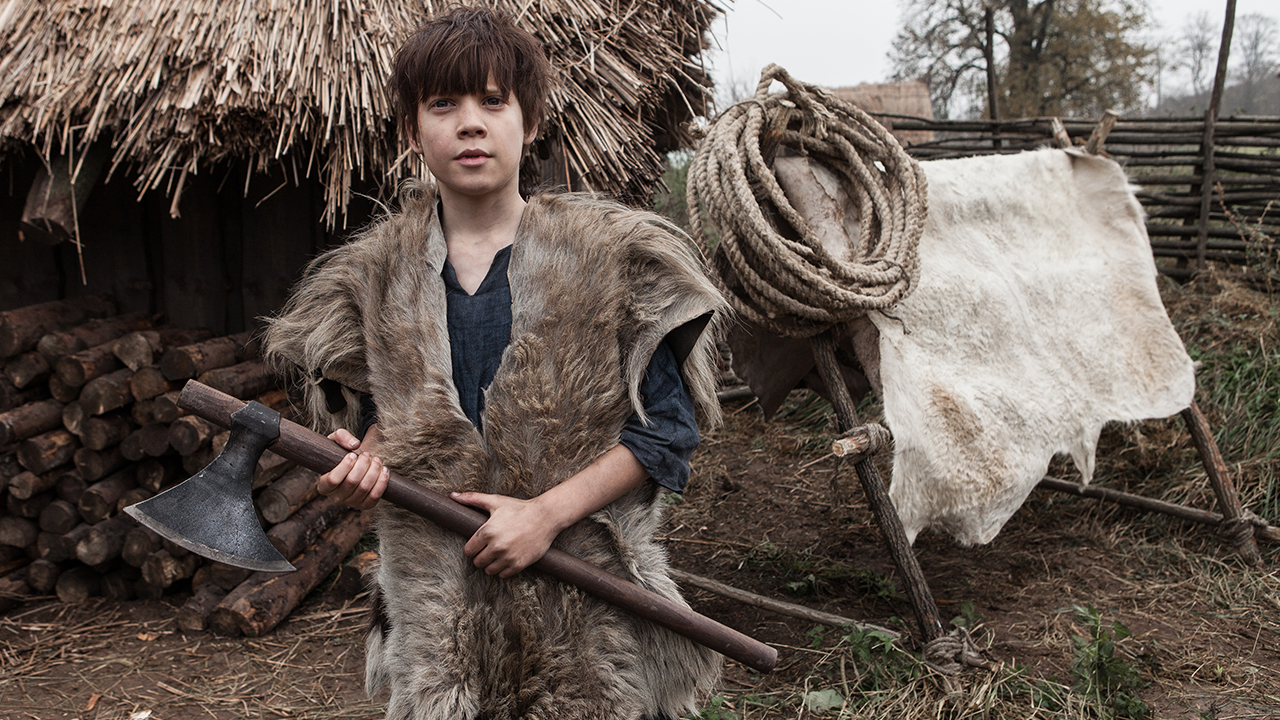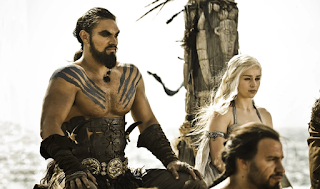Anglo-Saxonism in The Last Kingdom
Anglo-Saxonism is prominent in
various medieval-centered works. Anglo-Saxionism is the idea that Whiteness (Germanic
Anglo-Saxons) linked their race, language, and culture as “superior” over other
races and languages and cultures. Although there are many examples of this way
of thinking in many works, one specific work that I will talk of is the Netflix
series called The Last Kingdom.
This series begins with an all “White”,
Christian group from Bebbanburg that are trying to defend their lands against a
new group trying to claim them. This new group is composed of pagan, Viking men
called the Danes who are trying to conquer a new home. Upon arrival, the
Vikings are portrayed as pagan savages. They seem violence-hungry and eager to
kill anyone in their way. In fact, this Viking group slaughters the men of
Bebbanburg that are merely trying to defend their home. The beloved leader of
the men of Bebbanburg is even killed from behind, which is considered a sign of
weakness and disrespect (unable to face your enemy). On top of that the
prisoners (both men and women) acquired from taking the lands are brutally tortured
and executed. This makes these pagan men seem savage-like and blood thirsty and
overall beneath the Anglo-Saxon men of Bebbanburg. The main character is a boy
named Uhtred that is the rightful heir to Bebbanburg and he is taken prisoner
and raised as a servant to the pagan leader. This boy is portrayed as the
“underdog” and often is seen pure and of good heart in many scenarios. For
example, the pagan leader’s daughter was being taken advantage of by a boy and
this main character fought him to defend her and her honor. The idea of “chivalry”
even at a young age. He is portrayed as the unfortunate Anglo-Saxon taken
prisoner by pagans and is simply trying to do his best.
Another common theme in
medieval-based works is the Eurocentric ideals such as a patriarchal society. In
The Last Kingdom, the thoughts,
history, and ideals are often modeled around Europe. For example, men in this
show are always ruling or making the decisions just as society was too in Europe.
The idea of a woman being in charge is ludicrous and unheard of. In The Last Kingdom, Uhtred and his best
friend run off together and try and make it in a time of many different wars
and battles and fights. Whenever Uhtred introduces his friend, who is a woman,
other men, they seem to be confused and taken aback as to why she is his best
friend. However, in the show the woman still seems to not be on the same level
as Uhtred. For example, he makes the decisions and although she helps, his say
is final.
All in all, medieval-based works
such as The Last Kingdom, are often
centered around Eurocentric and Anglo-Saxonism ideals that Young discusses in
her book. Throughout this entire show, Anglo-Saxons are portrayed in a light
that upholds Eurocentric ideals and looks upon other races and cultures in a
negative manner.





Comments
Post a Comment